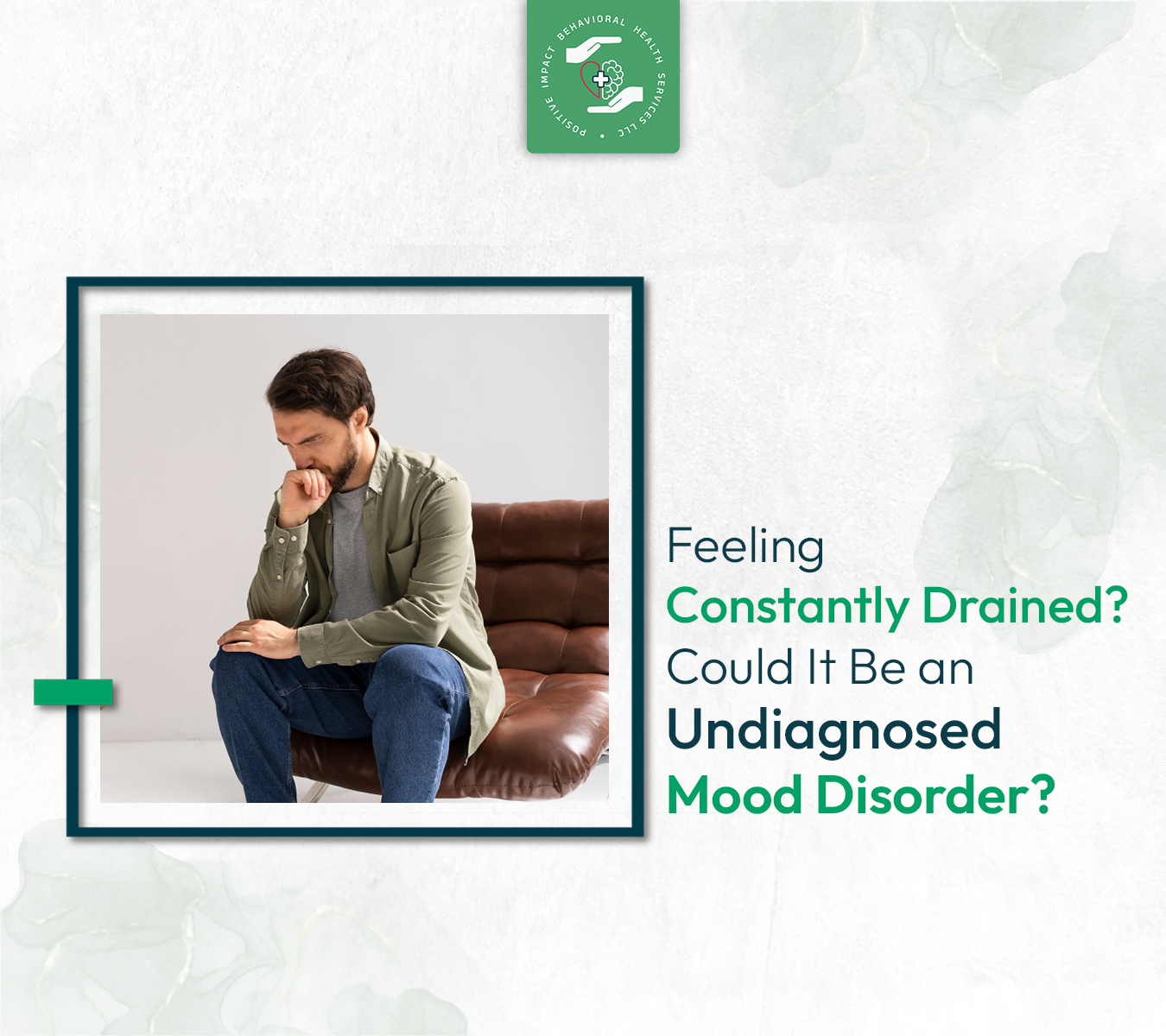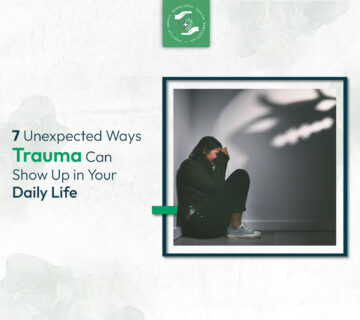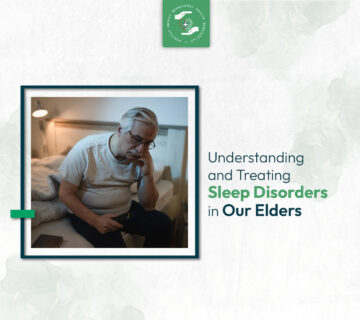You feel tired a lot. Little things feel hard. Sleep does not help. This can feel lonely and scary. It may be related to more than just exhaustion. It might be a mood disorder. We’ll explain it in simple terms.
What Is A Mood Disorder?
A mood disorder is when your feelings stay very low or swing up and down. These changes last for weeks or months. They make it hard to do normal things. Mood disorders are not your fault. They can come from how the brain works, your body, or things that have happened in your life.
Types of Mood Disorders
Major Depressive Disorder (MDD)
- Very low mood for a long time.
Persistent Depressive Disorder
- A low mood that lasts for many months.
Bipolar Disorder
- Periods of sadness and moments of vibrant energy.
Cyclothymic Disorder
- Light mood variations that continue for a lengthy period.
Seasonal Affective Disorder (SAD)
- Mood drops in certain seasons.
Premenstrual Dysphoric Disorder (PMDD)
- Strong mood changes before a period.
Signs You Might Be Drained
You might be tired for many reasons. Here are signs that point to a mood disorder:
- Feeling tired most days for many weeks.
- Trouble paying attention or remembering things.
- Not enjoying play, friends, or hobbies.
- Sleep or eating habits change.
- Feeling sad or empty a lot.
- Crying more than before.
- Body aches with no clear reason.
- Thinking about hurting yourself.
If you have many of these signs for more than two weeks, talk to a doctor or nurse.
Why Mood Disorders Make You So Tired
When your mood is low, your brain and body do not work the same. Sleep can be poor. Stress can stay high. Worry and sadness use up your thinking energy. Over time, all this makes you feel very tired.
When to Ask For Help
Ask for help if:
- You cannot do school, work, or chores.
- You stop seeing friends or playing.
- You think about hurting yourself.
- You feel hopeless for a long time.
Asking for help is brave. It is a step toward feeling better.
How People Get Help
There are simple ways that help many people feel better:
- Therapy: Talk with a trained person who listens and teaches ways to cope.
- Medicine: Some medications can help the brain feel calmer and lift the mood.
- Routine: Good sleep, small daily steps, and regular meals help.
- Support: Friends, family, or groups can provide comfort.
- Follow Up: A care team checks how you are and changes the plan as needed.
Most people do best with a mix of talk and medicine when needed.
How Positive Impact Behavioral Health Helps
Positive Impact Behavioral Health gives kind care for mood disorders. They listen first. They make a plan that fits your life. Their team helps with therapy, medicine, and simple tools you can use every day. They try to make care easy to get and easy to use.
Meet Dr. Martins Akhibi
Dr. Martins Akhibi holds board certification as a psychiatric nurse practitioner. He possesses considerable expertise in supporting individuals facing mood disorders and anxiety. He pays attention and employs therapy, counseling, and medication to help.
What to Expect At Your First Visit
Your first visit is mostly about listening. You can expect:
- A talk about how you feel and how long it has lasted.
- Questions about your health and any medications that you take.
- A check of sleep, food, school or work, and friends.
- A simple plan for the next steps.
- Just a quick inquiry about how you’re doing.
You can ask any question. The team will provide clear explanations.
Small Steps You Can Try Today
Try these simple steps while you get help:
- Get up and sleep at regular times.
- Walk a little each day. Short walks help.
- Do small tasks. One small thing at a time.
- Turn off screens before bed. Try a quiet activity.
- Eat regular meals. Simple foods help your energy.
- Tell one person you trust how you feel.
These steps are helpful but not a replacement for care.
If You Are Worried About Safety
In case you think about self-harm, get assistance. Call any of your local emergency numbers or use the nearest emergency room. In the United States, you can call or text 988 for crisis help. Let a trusted person know you are in trouble and need assistance.
Conclusion
Feeling drained most days is not just being tired. It can be a sign of a mood disorder. You are entitled to thoughtful and straightforward care. Positive Impact Behavioral Health and Dr. Martins Akhibi can help you with a plan that fits your life. Feeling low? Ask for help. Small steps can lead to big changes.
FAQs
Q. What is a mood disorder?
A mood disorder is when your feelings stay very low or very high for many days. It makes completing everyday tasks difficult.
Q. What happens at the first visit?
Someone will listen to you and ask about sleep, food, and school or work. They will make a simple plan with you.




